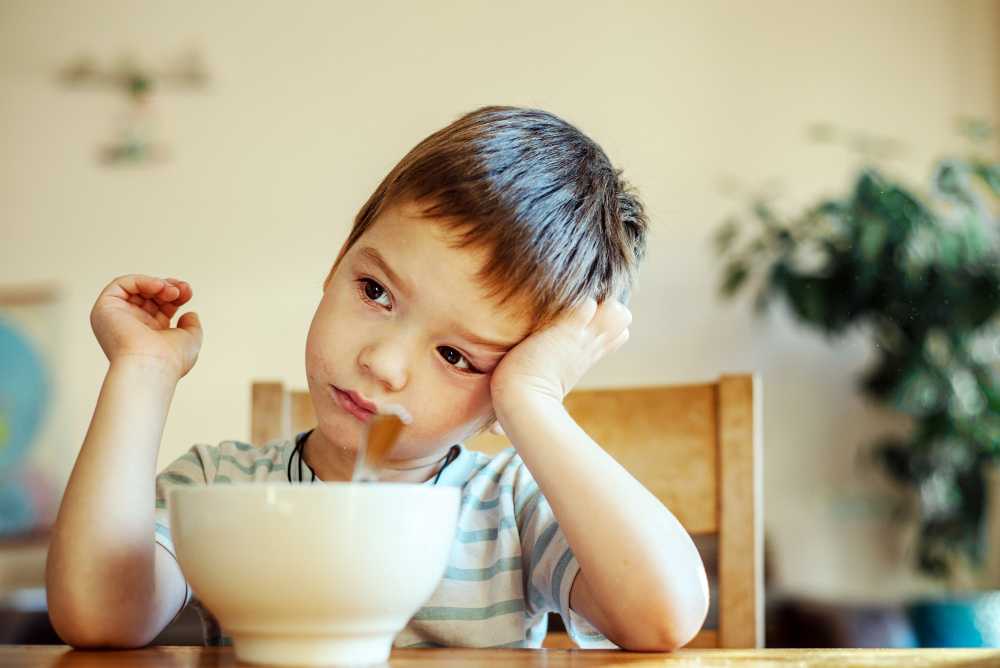A new study from USC, the University of South Australia, and the University of Queensland has provided a better understanding of what influences fussy eaters, and what is more likely to increase or decrease picky eating in children under 10.
The findings of the research were published in the ‘International Journal of Environmental Research and Public Health’.
Whether it’s an exclusive appetite for ‘white’ foods or an all-out refusal on veggies, when you have a fussy eater on your hands, mealtime can be more than a challenge. While picky eating is all part of the norm for developing toddlers, when it extends into school years, it takes a toll on all involved, children and parents alike.
Reviewing 80 health industry studies, the research found that a range of factors contributed to a child’s likelihood of being a fussy eater.
The study found that pressuring a child to eat, offering rewards for eating, very strict parenting all negatively influenced fussy eaters.
Conversely, a more relaxed parenting style, eating together as a family, and involving a child in the preparation of food all reduced the likelihood of fussy eating.
Lead researcher and USC PhD student Laine Chilman said the research hopes to help parents and carers better understand fussy eating in children.
“For parents with a fussy eater, mealtimes can be especially stressful — juggling the family meal and a picky eater is no small feat,” Chilman said.
“Some families have kids who turn their noses up at any vegetable. Others are dealing with kids who dislike certain textures or colours of food,” Chilman explained.
“Some of these preferences relate to a child’s characteristics or personality, which are difficult to change, if at all. But others are external factors that could help reduce fussy eating in kids,” Chilman continued.
“Eating together as a family, with siblings, and having a single meal at a regular time all helped reduce food fussiness. As did getting the fussy child involved in the meal, either by helping to choose the menu or helping to prepare the meal,” Chilman added.
“Yet if fussy eaters were allowed to eat in front of the TV, or if they were rewarded for eating certain foods, these behaviours negatively influenced picky children,” Chilman said.
According to the Australian Nutrition and Physical Activity Survey, most children do not meet recommended diet and nutrition guidelines.
UniSA researcher Dr Ann Kennedy-Behr said stress can contribute to fussy eating.
“When you have a child who is a picky eater, it’s very stressful for a parent or carer — they’re forever questioning whether their child is getting enough nutrients, enough food, and often enough weight gain,” Dr Kennedy-Behr said.
“Yet it’s important to understand that being overly anxious or worried can actually contribute to increased picky eating,” Dr Kennedy-Behr added.
“Avoiding getting cross and limiting any negativity around mealtime will be benefit everyone. Positive parenting, no matter how difficult it can be in certain situations, is the best step forward for fussy eaters,” Dr Kennedy-Behr explained.
Top tips to help a fussy eater
1. Set a good example: a family that eats together has better eating habits
2. Schedule regular mealtimes: regular mealtimes reduce levels of stress.
3. Get kids involved with food preparation: familiarity and a sense of control can help
4. Try to have one mealtime: a separate kids’ sitting encourages fussy eating
5. Turn the TV off: focus on food, not on screens
6. Try to keep mealtimes calm and stress-free: will be a better experience for all.
7. Remove rewards or bribes or punishments for fussy eaters.


